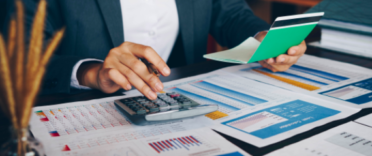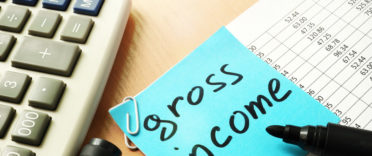 Whether you are a buy-to-let landlord with a portfolio of rental properties or simply renting a room out in your own home, you will have to pay income tax on rental profits. In general, tax is payable on the regular income you receive from your tenants, as well as on any profit you make when you come to sell the property.
Whether you are a buy-to-let landlord with a portfolio of rental properties or simply renting a room out in your own home, you will have to pay income tax on rental profits. In general, tax is payable on the regular income you receive from your tenants, as well as on any profit you make when you come to sell the property.
The first step when assessing your potential tax liability is to work out how much rental income you are going to make. This will then be included in your Self-Assessment tax return, alongside any other income you have from your salary, investments, pension or savings.
How is rental income taxed?
Rental income is taxed in line with your normal income tax rate, as follows:
| Taxable Income | Tax rate | |
| Personal Allowance | Up to £12,570 | 0% |
| Basic rate | £12,571 to £50,270 | 20% |
| Higher rate | £50,271 to £125,140 | 40% |
| Additional rate | Over £125,140 | 45% |
*Rates for tax year 2024/25
You need to be mindful of the fact that your rental income may push you into a higher tax band when combined with your other income. Income is taxed in a set order depending on its source with income from earnings, pensions and property being assessed before dividend income. You could, therefore, be liable to pay a higher rate of tax (as shown above) on the portion of any income that falls into the next tax band. If you are in receipt of dividend income then the higher rates are slightly different and are shown below.
| Tax band | Tax rate on dividends over the allowance |
|---|---|
| Basic rate | 8.75% |
| Higher rate | 33.75% |
| Additional rate | 39.35% |
However, it is possible to offset some of the costs you incur from renting your property to reduce your overall tax liability. We explain this in more depth later in this article.
Instant free mortgage advice
Our partner Habito is a leading online mortgage broker and will recommend the best mortgage for you
- Habito checks over 20,000 mortgages from 90 mortgage lenders
- 5-star rating on Trustpilot from over 5,000 customer reviews
- Can register online
Working out your rental income
In order to calculate how much tax you are going to have to pay, it is necessary to work out exactly what your rental income amounts to. The first step in the process is adding together the rent you were paid over the previous tax year, along with money paid to you by your tenants for things like:
- Cleaning/maintenance of any communal areas
- Utilities such as gas, electricity or water
- Non-refundable deposit
- Any portion of a deposit you don't return because of damage or breakages. However, this can be offset as an expense against your final bill
What expenses and allowances can landlords claim?
Property allowance
The first £1,000 of rental income is tax-free. This is known as your "property allowance" and, if your income doesn't exceed that £1,000, means you don't need to complete a Self-Assessment tax return, unless you have to in order to record other income.
Allowable expenses
To counterbalance the tax you have to pay on your rental income, you can offset expenses incurred from renting out the property. According to Gov.uk, this includes, but is not limited to:
- letting agents’ fees
- legal fees for lets of a year or less, or for renewing a lease for less than 50 years
- accountants’ fees
- buildings and contents insurance
- maintenance and repairs to the property (but not improvements)
- utility bills, like gas, water and electricity
- rent, ground rent, service charges
- Council tax
- services you pay for, like cleaning or gardening
- other direct costs of letting the property, like phone calls, stationery and advertising
Replacement of domestic items relief
If you have to replace "domestic items", such as beds, sofas, carpets, fridge or other household appliances - and the items you have replaced are no longer in use in the property - you can claim tax relief on them. There are certain caveats, including:
- The item has to have been provided solely for the tenants' use within the property
- It has to be a like-for-like replacement, otherwise you have to deduct the additional amount you have spent on upgrading the item
- You need to deduct any money you make from selling the old item
- You can also claim back the cost of getting rid of the original item
- You can't claim this relief if you use the government's Rent a Room Scheme
Mortgage payment tax credit
In the past, landlords were able to deduct the interest component of their mortgage payments from their tax bill. However, the rules have now changed and, instead, you can claim a tax credit for the equivalent of 20% of the interest payment.
Paying Capital Gains Tax on a rental property
When you sell your rental property, you will be liable for Capital Gains Tax on any profit you make. This is charged at different levels depending on which income tax band you are in:
- Higher-rate tax band - 28%
- Basic-rate tax band - 18%
In the current tax year you can make tax-free capital gains up to £3,000. If you own the property with a partner, it's possible to combine this allowance, doubling your tax-free allowance.
You may be able to offset the cost of building work or renovations you have undertaken on the property, as well as costs involved with buying and selling the property, including stamp duty and solicitor and estate agent fees.
If your rental property was once your primary residence, you may be able to reduce the amount of capital gains tax that you pay when you sell it by claiming primary residence relief (PRR) based on the period of time you lived in it. You can claim PRR for the number of months that you lived in the property plus an additional 9 months. You can use the capital gains tax calculator to work out how much capital gains tax you are required to pay.
What tax do you pay if you live in the property you are letting?
If you rent out part of your main residential home, either to a long-term lodger or through a short-term rental app, such as Airbnb, you will be liable for tax in the same way as for other rental income. However, you can apply to be part of the government's Rent a Room Scheme, which allows you to earn £7,500 per year tax-free. This scheme is open to people who are resident landlords, even if you don't own the property, or if you run a bed and breakfast or guest house. It is worth highlighting that you can not use the Property Allowance mentioned earlier alongside the Rent a Room Scheme.
If a link has an * beside it this means that it is an affiliated link. If you go via the link, Money to the Masses may receive a small fee which helps keep Money to the Masses free to use. The following link can be used if you do not wish to help Money to the Masses or take advantage of any exclusive offers - Habito, Vouchedfor






